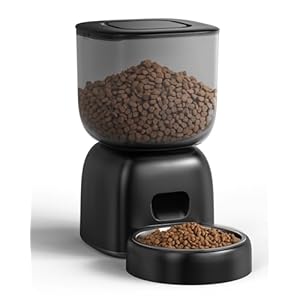
When it comes to treating your guinea pig or rabbit, choosing the right snacks can be crucial for their health and happiness. Imagine offering your furry friend a variety of fresh, wholesome treats that not only satisfy their taste buds but also provide essential nutrients. You might be surprised to discover the array of options available that cater to their dietary needs and well-being. So, what exactly are the best treats for your beloved guinea pig or rabbit?
Healthy Treat Options for Guinea Pigs
When offering healthy treats to your guinea pig, opt for fresh vegetables and fruits in small portions. These furry companions enjoy a variety of produce, such as bell peppers, cucumbers, and leafy greens like romaine lettuce or cilantro. Remember to wash the fruits and vegetables thoroughly to remove any pesticides or harmful residues that could be present. Guinea pigs have sensitive digestive systems, so it’s essential to introduce new foods gradually to prevent any tummy troubles.
In addition to fresh produce, you can also offer your guinea pig small amounts of hay-based treats or pellets specifically designed for them. These treats can provide additional nutrients and variety to their diet. Avoid sugary treats, as guinea pigs are prone to diabetes and obesity. Always monitor your guinea pig’s weight and adjust their treat portions accordingly to maintain a healthy balance.
Nutritious Snacks for Rabbits
For rabbits, providing nutritious snacks is essential to complement their main diet of hay and vegetables. Opt for high-fiber snacks like Timothy hay-based treats or homemade oat biscuits. These options not only add variety to their diet but also help maintain their dental health. Another great snack choice is fresh herbs like parsley, cilantro, or basil, which aren’t only tasty but also rich in vitamins and minerals.
Consider offering small amounts of leafy greens as snacks, such as arugula or romaine lettuce, to provide additional nutrients. Carrot tops and dandelion leaves are also popular choices that rabbits tend to enjoy. Remember to introduce new snacks gradually to avoid digestive issues.
Avoid sugary treats, as rabbits are prone to dental problems and obesity. Treats like yogurt drops and commercial rabbit treats high in sugar should be given sparingly or avoided altogether. Always ensure fresh water is available, and monitor your rabbit’s weight to adjust snack portions accordingly. By choosing nutritious snacks, you can help keep your rabbit healthy and happy.
Safe Fruits and Vegetables for Guinea Pigs
To ensure the well-being of your guinea pigs, include a variety of safe fruits and vegetables in their diet. Guinea pigs enjoy a diverse range of fruits and vegetables that can provide essential vitamins and minerals. Some safe fruit options for guinea pigs include apples (without seeds), bananas, berries, melons, and oranges. When offering vegetables, consider giving them bell peppers, carrots, cucumbers, leafy greens like kale and spinach, and zucchini.
It’s important to introduce new fruits and vegetables gradually to prevent digestive issues. Always wash fruits and vegetables thoroughly and remove any seeds, pits, or stems that could be harmful. Remember to feed these treats in moderation alongside their regular hay and pellets to maintain a balanced diet for your guinea pigs. Avoid feeding them fruits high in sugar like grapes or cherries, as well as vegetables that are toxic to them such as onions, garlic, or potatoes. By including a variety of safe fruits and vegetables, you can provide your guinea pigs with a nutritious and enjoyable diet.
Recommended Herbs and Plants for Rabbits
Include a variety of safe herbs and plants in your rabbit’s diet to promote their health and well-being. Rabbits can benefit from herbs like parsley, cilantro, basil, and dill, which provide essential nutrients and add flavor to their diet. These herbs are rich in vitamins and antioxidants that support your rabbit’s immune system and digestion. Dandelion greens are another excellent option, offering vitamins A, C, and K, as well as minerals like calcium and iron.
Mint and oregano can also be given occasionally as a tasty treat. When introducing new herbs or plants to your rabbit, start with small amounts to ensure they don’t cause any digestive issues. Safe plants for rabbits include borage, chamomile, and calendula, which can help with relaxation and provide additional health benefits. Avoid plants like foxglove, nightshade, and buttercup, as they can be toxic to rabbits.
Always wash herbs and plants thoroughly to remove any pesticides or chemicals before offering them to your rabbit. Remember to provide a balanced diet and consult with a veterinarian for specific dietary recommendations.
Trending Products














